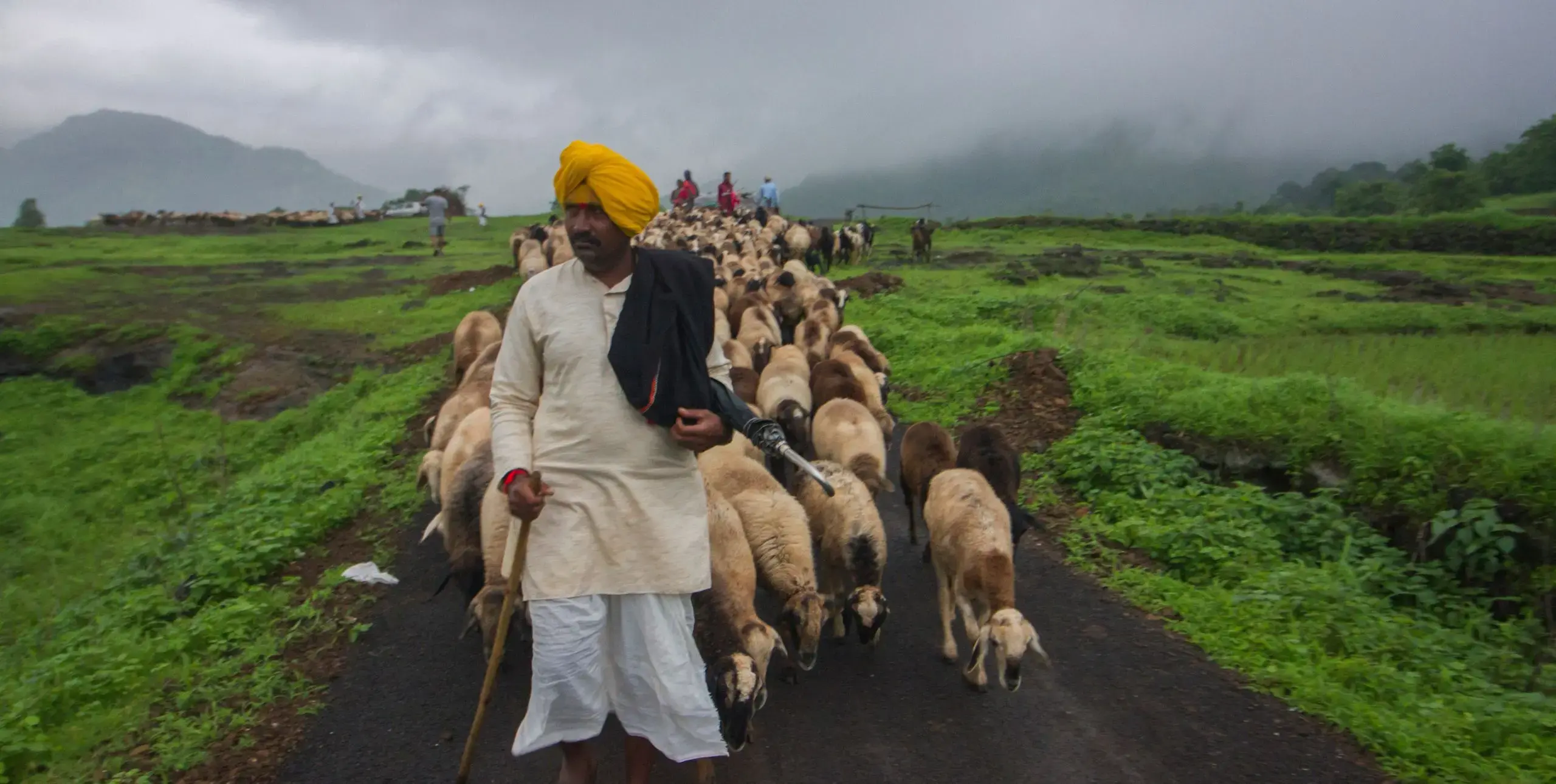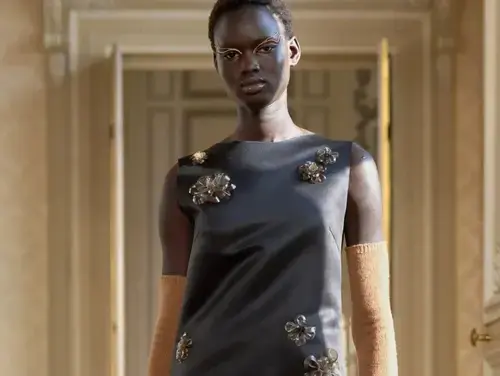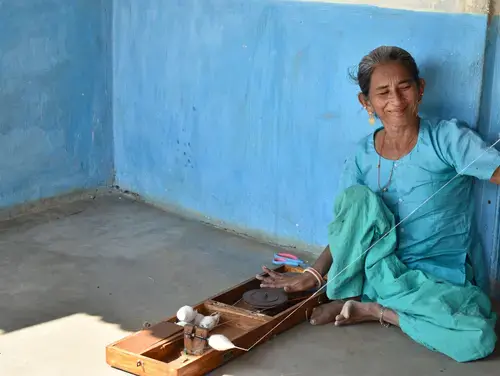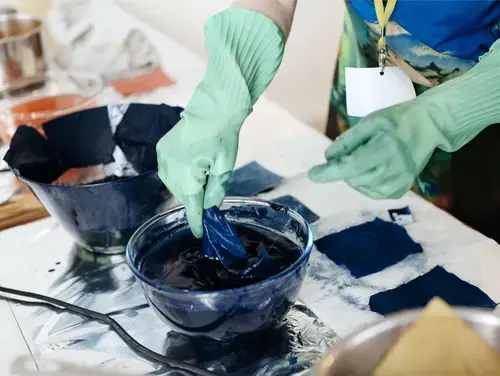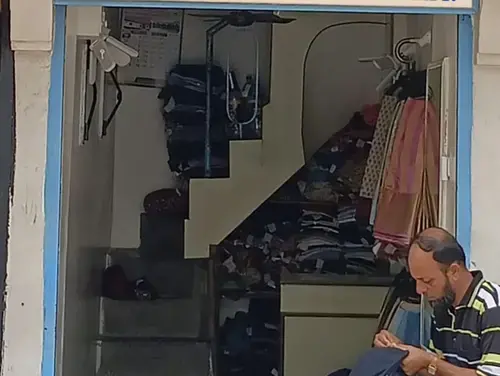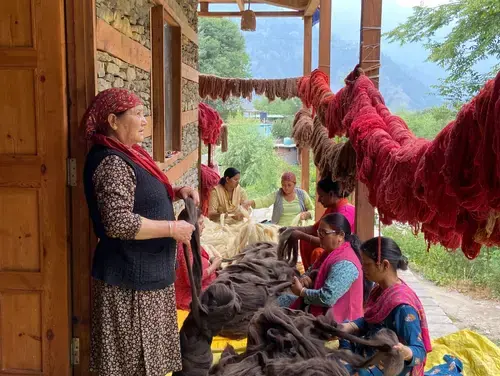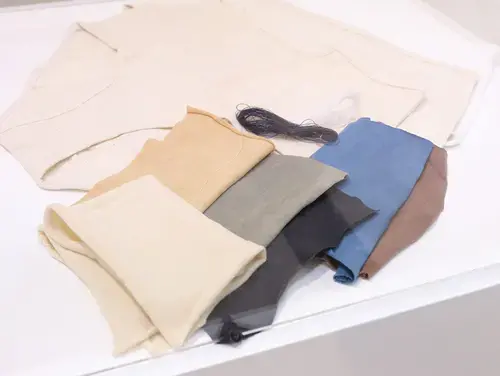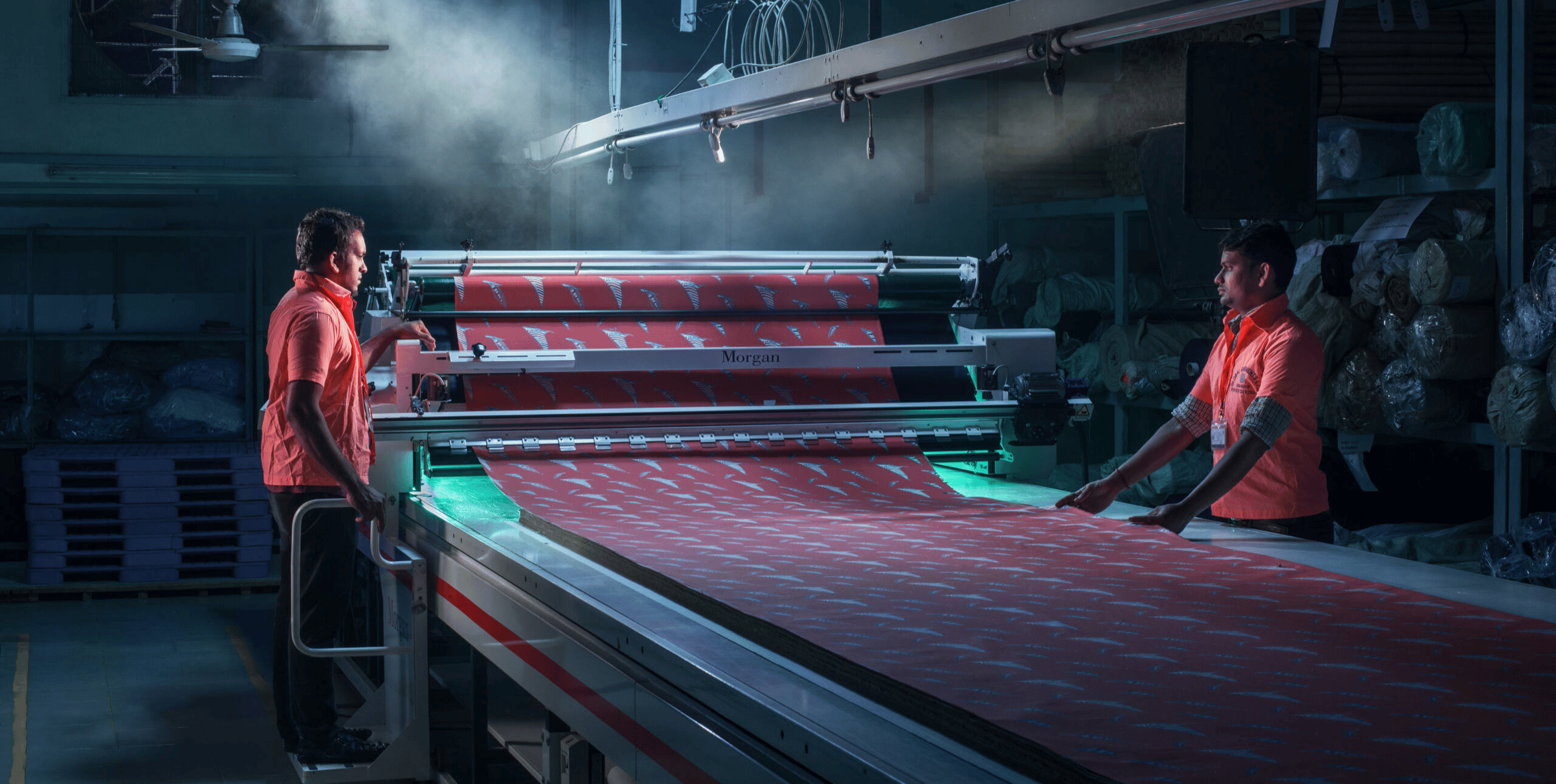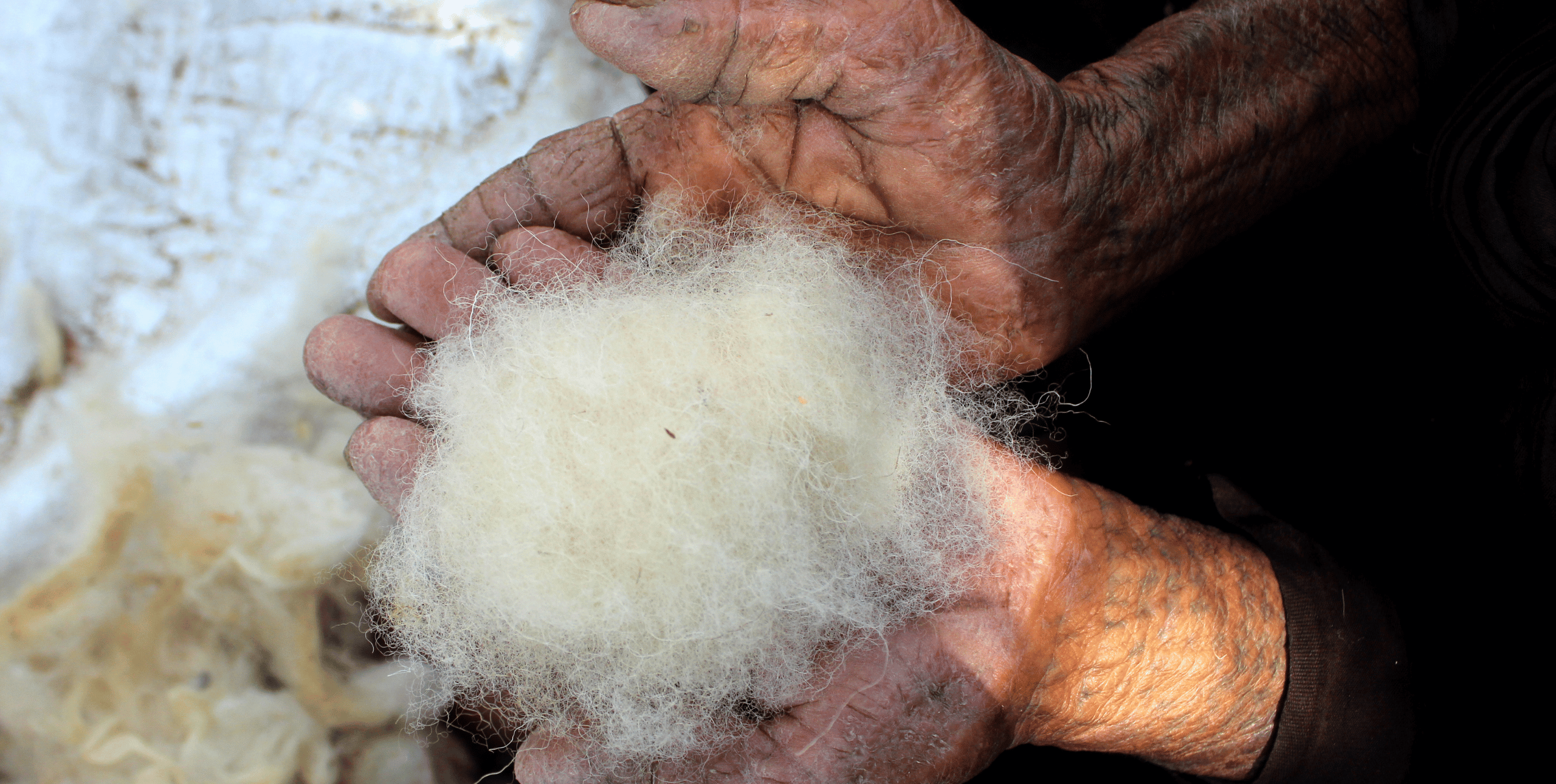See exciting product prototypes, examples of textile and product development stages, and learn about the people and methods behind the research. See stunning imagery showcasing different stages of testing, prototyping and refining to create novel products and processes, from natural dyes to indigenous fibres.
Learn how the programme has fostered sustainable innovation partnerships between small businesses from across the globe, including India, Nigeria and the UK.
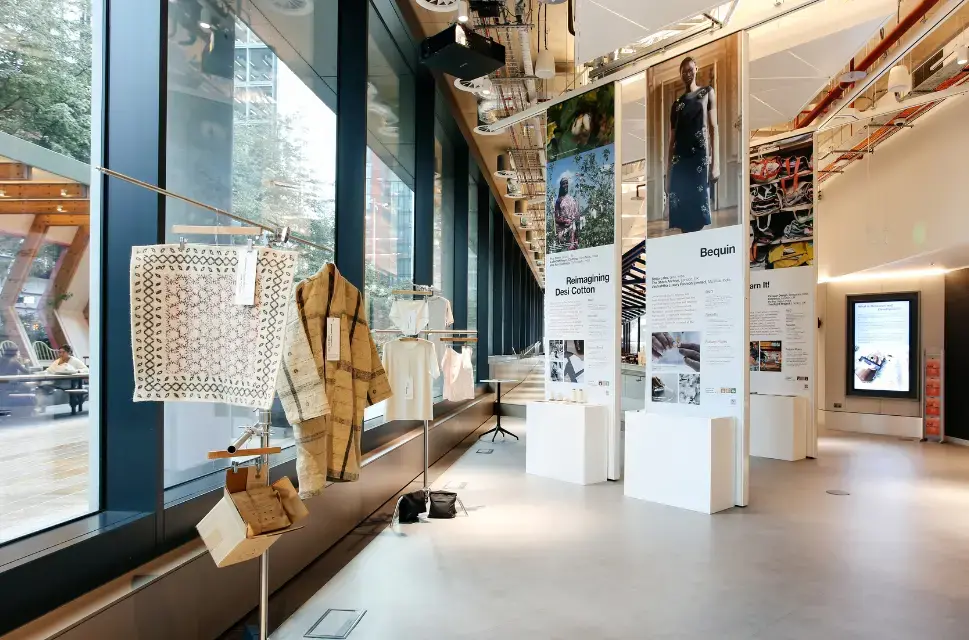
Exhibition details
Ground floor, 1 Redman Place, Stratford Cross, London E20 1JQ
Now extended:
12 September 2025 – 19 March 2026
Open 09.00 – 17.00, Monday – Friday (closed on public holidays)
Free entry, no booking required, but visitors are required to sign in with reception on arrival.
About the project partnerships
The exhibition focuses on the latest cohort of partnerships, New Landscapes India, connecting business across India and the UK to tackle sustainability challenges.
Project partnerships featured include:
Bequin
A partnership between:
Botto Labs, Goa, India
The Stitch Archive, London, UK
Vashishtha Luxury Fashion Limited, Mumbai, India
Conventional plastic sequins and embellishments bring sparkle, but the impact of their production and disposal is problematic for our environment. The Bequin project aimed to develop a high-quality, sustainable alternative to petroleum-based sequins using bio-derived materials targeted at the luxury market.
Circular Handspun
A partnership between:
Conserve India, Delhi, India
Khadi London, London, UK
Khamir, Kachchh, India
Where Does it Come From? Ipswich, UK
The Circular Handspun project explored textile circularity through decentralised craft clusters, generating independent rural livelihoods, reducing carbon emissions via hand-powered processes, and preserving the heritage skills of yarn and fabric production within a contemporary circular economy model.
Climate Positive Microbial Colours
A partnership between:
Truetone Ink, Ahmedabad, India
ColourAshram Foundation, Mysore, India
Post Carbon Lab, London, UK
Climate Positive Microbial Colours aimed to develop and scale sustainable and regenerative microbial colouration methods as alternatives to carbon-intensive, non-biodegradable synthetic dyes. The project aimed to demonstrate how combining microbial colouration technology with plant-based additives and wet-processing systems could reduce the textile industry’s CO2 emissions and water pollution.
Darn it!
A partnership between:
Circular Design, Bengaluru, India
Estethica, London, UK
Iro Iro Zero Waste, Jaipur, India
The Right Project, London, UK
The Darn It! project aimed to reconnect consumers with India’s rich mending traditions through a digital platform, making traditional repair services more accessible and helping to preserve culturally relevant and endangered techniques, such as Kantha embroidery from Bengal, Katab appliqué from Gujarat, and Rafoogari darning from Kashmir.
Desi Oon Wool Traceability Framework
A partnership between:
Centre for Pastoralism, Delhi, India
Here We Are, Argyll, UK
Where Does It Come From? Ipswich, UK
India has the world's second-largest sheep population but discards more than 50% of its indigenous wool and imports significant quantities. The Desi Oon Wool Traceability Framework project aimed to develop a digital toolkit that enables traceability across the desi oon supply chain, supporting indigenous wool economies and transparent practices.
Reimagining Desi Cotton
A partnership between:
Pico Store, Bristol, UK
KASKOM Regen Clothing, Tamil Nadu, India
Mila Fair Clothings, Tamil Nadu, India
The Reimagining Desi Cotton project aimed to develop a fully biodegradable, 100% organic and regenerative cotton underwear prototype. Through this, the project aimed to showcase indigenous desi cotton’s environmental and market potential, whilst highlighting KASKOM’s long-term work in Tamil Nadu pioneering the revival of indigenous Karunganni desi cotton, specifically for the novel application in jersey materials.
About UAL Fashion, Textiles and Technology Institute
UAL Fashion, Textiles and Technology Institute (UAL FTTI) addresses sustainability challenges facing some of the most complex and fast-moving global industries. UAL FTTI deploys interdisciplinary approaches toward research and development (R&D) operating at the nexus of fashion, textiles and technology sectors.
Convening expertise from across UAL’s six colleges, as well as established industry and higher education networks, UAL FTTI has provided specialist academic support to each of the New Landscapes partnerships.
UAL FTTI’s interdisciplinary capability spans design, anthropology, fibre chemistry, bio-technology, materials engineering, digital, manufacturing and production, consumer behaviour, business and management.
Dates:
-
Tags:
- Theme: Climate & Sustainability
- Art Form: Architecture Design and Fashion
- Region: Europe South Asia
